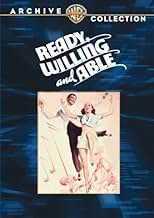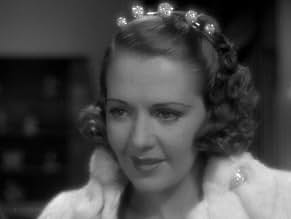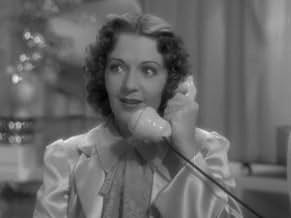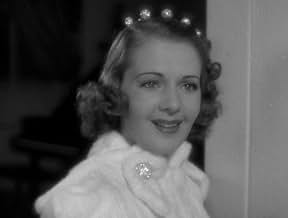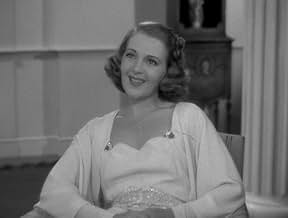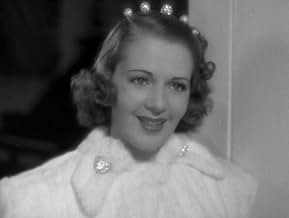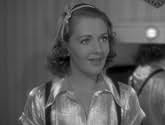AVALIAÇÃO DA IMDb
5,7/10
367
SUA AVALIAÇÃO
Adicionar um enredo no seu idiomaTwo songwriters want to cast a British star in their new show.Two songwriters want to cast a British star in their new show.Two songwriters want to cast a British star in their new show.
- Indicado a 1 Oscar
- 1 indicação no total
Al Shaw
- Moving Man
- (as Shaw)
Sam Lee
- Moving Man
- (as Lee)
Lillian Kemble-Cooper
- Mrs. Buffington (Credits)
- (as Lillian Kemble Cooper)
- …
Enredo
Você sabia?
- CuriosidadesFinal film of Ross Alexander. NOTE: He committed suicide two months before this film was released. Because of this event, Warners eliminated his name from the above title credits, substituted that of Lee Dixon--who actually had little more to do than to serve as Ruby Keeler's dancing partner in an otherwise subordinate role--and relegated Alexander's credit to that of a member of the supporting cast, even though he played the leading male role, and Keeler's romantic lead. Reportedly, James Newill dubbed Alexander's singing voice.
- Erros de gravaçãoWhen Ruby Keeler decides to ask Hugh O'Connell to pay the balance due on the show so it can open as scheduled, Hugh's jacket is closed in the wrong direction. Since his handkerchief is visibly on the correct side, it's not flipped film.
- Citações
Pinky Blair: Hiya, baby! Hey, did you hear my last song?
Dot: I hope so!
Pinky Blair: Dot, what do you think I am now?
Dot: Well, a man who had been valet to a seal could be anything!
Pinky Blair: You guessed it. He's an actors' agent.
Dot: An agent? You have hit a new low!
- ConexõesReferenced in The Honeymooners: The $99,000 Answer (1956)
- Trilhas sonorasToo Marvelous for Words
(1937) (uncredited)
Music by Richard A. Whiting
Lyrics by Johnny Mercer
Played during the opening and end credits and as background music
Played on piano by Lee Dixon and spoken by Ross Alexander
Reprised on piano by Lee Dixon at a party
Sung by Ross Alexander at a party
Was the show's big production number at its opening, sung by Ross Alexander (dubbed by James Newill) and Wini Shaw and chorus,
and danced to by Ruby Keeler, Lee Dixon and chorus
Avaliação em destaque
Ready Willing and Able (Warner Brothers, 1937). I finally had a chance to see this film and I have to admit, it's a cute little film from Warner Brothers in the late 30's. The actors seem like as though they are having a lot of fun and the musical numbers especially "Too Marvelous for Words" and "Just a Quiet Evening" are great. However, while watching this film, I feel a little sad for the late Ross Alexander who plays Barry Granville. Ross Alexander was very talented, nice looking, and had a great screen presence, but I guess Warners didn't know what to do with him. It seems as though his role was originally intended for Dick Powell, but he may have been unavailable. Keeler and Alexander have good screen chemistry and if he didn't die, maybe they would have made more films together.
Overall, a nice way to pass time. Definitely check out it.
Overall, a nice way to pass time. Definitely check out it.
- stareyes24
- 4 de jan. de 2012
- Link permanente
Principais escolhas
Faça login para avaliar e ver a lista de recomendações personalizadas
Detalhes
- Data de lançamento
- País de origem
- Idioma
- Também conhecido como
- Ready, Willing and Able
- Locações de filme
- Empresa de produção
- Consulte mais créditos da empresa na IMDbPro
- Tempo de duração1 hora 33 minutos
- Cor
- Mixagem de som
- Proporção
- 1.37 : 1
Contribua para esta página
Sugerir uma alteração ou adicionar conteúdo ausente

Principal brecha
By what name was Amores de Opereta (1937) officially released in India in English?
Responda
